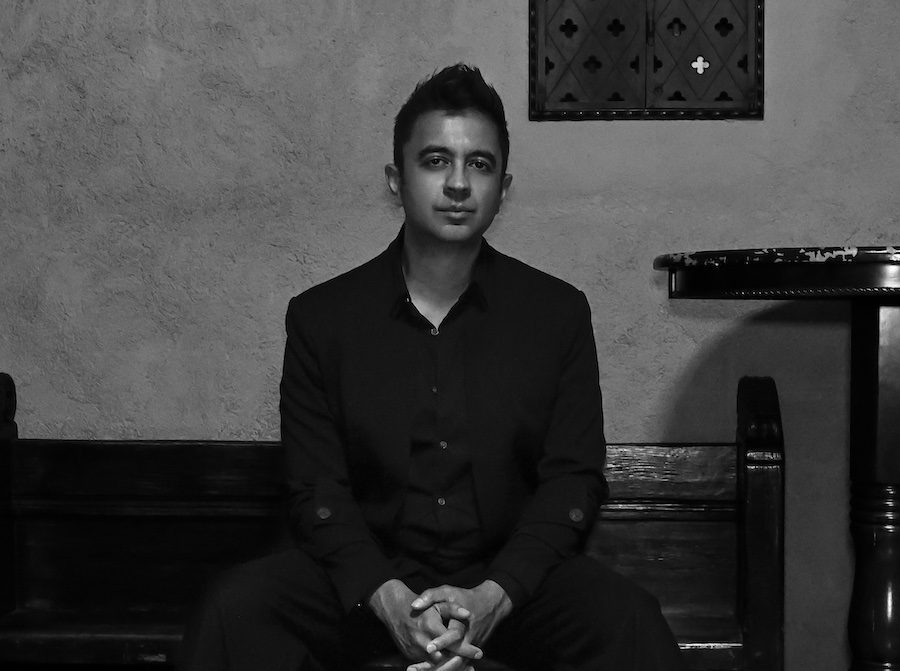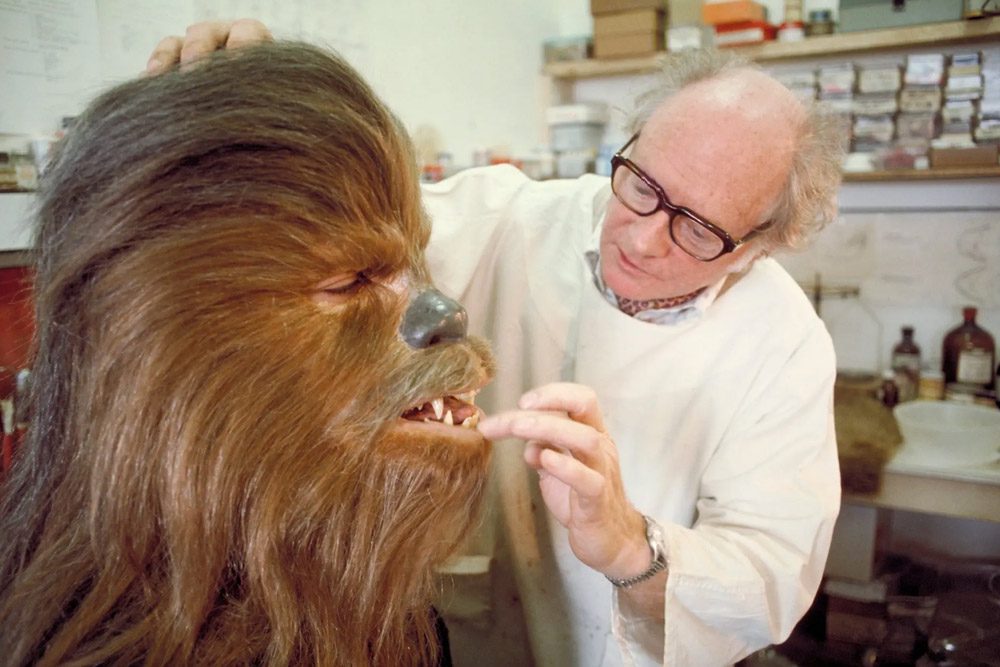
I’ve been listening to Vijay Iyer’s music for almost 20 years. We first met in 2006, when I was the editor of the world music magazine Global Rhythm and he had just released Raw Materials, an album of duos with saxophonist Rudresh Mahanthappa. They came up to the magazine’s offices and I interviewed them together. It was a very interesting conversation; what struck me the most was something Iyer said about cultural identity, that Asian-Americans “become the boundary by which American identity is defined… we are always the people who are on the either-or side of the American fence.”
Despite being 100% American, born in upstate New York to Indian immigrant parents, Iyer was often portrayed early in his career as an exotic novelty, for entirely superficial reasons. The genuinely interesting things about him — his degrees in math and physics, the fact that he was a self-taught pianist who’d shifted to the instrument after 15 years as a violinist — were often ignored. Instead, his name and skin color were what mattered.
What became interesting about him to me was the breadth of his vision. He signed with the German label ACT Music and released several pathbreaking albums including 2009’s Historicity, a collection of versions of songs ranging from Julius Hemphill’s “Dogon A.D.” to MIA’s “Galang”; 2012’s Accelerando, which paired originals with takes on Flying Lotus’s “MmmHmm” and Henry Threadgill’s “Little Pocket Size Demons”; and his first solo album. Then he moved to ECM, where he put out two duo albums (one with trumpeter Wadada Leo Smith and one with fellow pianist Craig Taborn), a trio disc, and Mutations, an album featuring a 10-movement work for piano, string quartet, and electronics. He did all this work and much more without ever seeming to acknowledge the boundaries he was crossing.
I continued paying attention to Iyer’s music, but we didn’t speak again for another decade. I interviewed him for the second time in May 2017, by which point he’d become a one-man institution. He’d received a MacArthur Fellowship, had been voted Jazz Artist of the Year in DownBeat‘s annual critics’ poll three times, and gotten a lifetime appointment to teach at Harvard. He was definitely on the inside of elite, institutional America, while remaining a hip namecheck. (He was pretty much the only living jazz artist guaranteed coverage on Pitchfork; they seemed to review every record he put out.)
A few months after that interview, in October 2017, we ran into each other at an Art Ensemble of Chicago performance, and I watched him play in a duo with Smith at ECM’s 50th anniversary concert at Jazz at Lincoln Center in November 2019.
In 2020, he formed a trio with drummer Tyshawn Sorey, with whom he’d been playing in various contexts for two decades, and bassist Linda May Han Oh. They played at New York’s Jazz Standard at the end of January, premiering music that would appear on the album Uneasy, released in April 2021. That was one of the last live shows I saw before the pandemic shut the world down.
Four years later, things have reopened slowly, and Iyer’s been, if anything, even more high profile than before. He joined vocalist Arooj Aftab and bassist Shahzad Ismaily for a trio album, Love In Exile, that was greeted with rapturous reviews from pretty much every corner of the music world, and now he’s released a second album with Oh and Sorey, Compassion. They launched that record with a week’s worth of shows at the Village Vanguard, and early in the run, I got on the phone with him again to talk about his new music, and much more.
Compassion features nine original pieces, plus versions of Stevie Wonder’s “Overjoyed,” Roscoe Mitchell’s “Nonaah,” and a medley of John Stubblefield’s “Free Spirits” and Geri Allen’s “Drummer’s Song.” But almost all the music Iyer brought into the session was originally written for something else — a live performance at the Celebrate Brooklyn festival dedicated to those lost in the pandemic; a tribute to Iyer’s father, who died in 2021; Ghosts Everywhere I Go, a work for septet inspired by poet Eve L. Ewing’s writing. Iyer told me that this isn’t atypical for him, that he prefers to adapt music for his trios than to write for them.
“That was even the case on like, [2015’s] Break Stuff… a lot of that music had been written for a large ensemble. And so then what we ended up doing were kind of like dub versions of those.”
“Prelude: Orison,” which comes from For My Father, starts out solo, but then becomes a piano-bass duet with minimal adornment from Sorey; the interaction with Oh is so intimate, it’s like Iyer is leaning on her shoulder. “That had been this — I don’t know, writing that piece was kind of unique, like it was a new experience for me… it felt like I just sort of went into a trance and started and made that piece. And then, after kind of sitting with it, I realized it was for my father.”
He explained, “I think it’s partly because writing for trio is kind of strange. It’s a little hard to create a sense of distinction between what’s written and what isn’t, to the point where it’s, because we’re all playing the same way, we’re playing the whole time, all three of us. If it were a quartet with somebody else, then there’d maybe be some unison figures that would signal this is the part that’s composed, or this is charted out… I guess I find that writing for trio is strange because it doesn’t always provide those obvious anchors. You’re just in the same space the whole time in trio music. So that’s sort of the puzzle for me.”
Still, he says, “if I repurpose other music, then we’ll all hear it in a new way. It’ll take on a different life in the context of this group.” And given that almost all the music was written within the year prior to the recording session (which took place at Oktaven Audio in Mount Vernon, New York in May 2022), “it all felt like it was part of the same swirl of activity, I guess I’d put it that way.”
The outside compositions all have deep significance; they’re more than just tunes Iyer likes. He and Roscoe Mitchell have a relationship that goes back many years; he played in Mitchell’s band the Note Factory in the early 2000s, taking a spot formerly held by Matthew Shipp.
“Nonaah” is Mitchell’s signature composition, a piece built around a horn line full of wild leaps that he’s recorded in multiple contexts over 50 years, playing it solo, with the Art Ensemble of Chicago, with orchestras and more. Iyer said his version is modeled on a previous studio recording: “the version on Fanfare For The Warriors, the Art Ensemble with [pianist] Muhal [Richard Abrams] from the early-mid ’70s…It is about bringing out these extremes, these registral and intervallic extremes. And it still is a challenge. We’ve been trying to just drop it in every now and then in sets and it’s always, Wait, I thought I knew how it went. It’s such a disorienting line… It feels like it’s all over the place.”
The version of Stevie Wonder’s “Overjoyed” is a tribute to Chick Corea, who died in February 2021; Iyer was given Corea’s piano, and the song was the last thing the late pianist played in public, on a livestream. Iyer delivers the song not as a funereal ballad, but as a romping celebration of life. Similarly, the high-energy take on John Stubblefield’s “Free Spirits” that ends the album is influenced by the version Mary Lou Williams recorded on her 1976 album of the same name, and interpolates a fragment of Geri Allen’s “Drummer’s Song,” which the trio first recorded on Uneasy.
Compassion comes at a moment of great visibility for Iyer, thanks to the critical and popular success of Love In Exile. He began collaborating with Arooj Aftab and Shahzad Ismaily in 2018, performing live when their schedules permitted. The album, a collection of dreamlike improvisations, was recorded in 2019, but not released until last year. “We always knew that the project was special,” Iyer says, “and I have to hand it to Arooj; she really has that vision, she sees a place for her work in the world… she’s been so clear in her head about what she wants to do and how to do it, and it’s just been remarkable.”
He sees the album as occupying a unique spot “between my kind of status in the jazz universe and hers in whatever you’d call it, alternative global pop something or other… I think it was just a way to move across different scenes kind of smoothly.” But it’s not the kind of record that can really be marketed; it had to connect with people on its own. Which it did; as he says, “the music itself did the work for us. Like, it really speaks to people in a way that was so validating. Because it spoke to us, or else we wouldn’t have done it. But, you know, we played in all kinds of different contexts — cathedrals, rock clubs, outdoor festivals, really every type of place. And because the music is so malleable, we were able to kind of rise to every space that we were in somehow.”
While his “status in the jazz universe” seems to grow year by year, Iyer maintains a parallel career as a classical composer that sometimes goes unnoticed by those same fans and journalists. “It’s actually about half of my musical life at this point, or maybe more,” he says. “I wrote a cello concerto that premiered in London in fall of ’22, and also it was played around the US in the early part of ’23. Last fall my piano concerto was premiered, but I didn’t play it. It was written for a classical pianist and a string orchestra. So that premiered in October, November.
“And I’ve written stuff for soloists like Matt Haimovitz. The piano piece I mentioned called For My Father was recorded by Sarah Rothenberg,” he continued. “She hasn’t released it yet, but it’ll be out probably this year. A piece that I wrote for Imani Winds called Bruits was the title piece from their Grammy-nominated album that came out in ’22. I’ve written a bunch of things for Jennifer Koh, a violin concerto for her, and different things. So there’s a lot, once you add it up. A piece for So Percussion that they played hundreds of times. And actually, I just did a new piece with them that we premiered at Carnegie Hall in December, that I played with them. It was myself and the trumpet player Milena Casado and then the four of them. So yeah, that’s ongoing. I have some more chamber pieces I’m working on this spring and some orchestral stuff down the line.”
Writing something for someone other than yourself to perform, adhering strictly to a score — especially if it’s going to premiere onstage but maybe not be recorded for years, if at all — must be a very different feeling from playing jazz, which involves the assertion of individual identity through spontaneous creation. I wondered whether it offered Iyer a different type of satisfaction.
“I mean, often what that means is that, like, a few thousand people hear it all at once or something like that, you know?” he responded. “So then it still has its own impact in the world. That’s maybe similar in scale to putting out a jazz record or something… it’s a different kind of work, I would say. You know, because you’re trying to sculpt something before it happens. And most of what I do musically as a player involves me sculpting it as it happens. But then often, I think, the most rewarding part of it for me is working with musicians on their performance, on their interpretation, helping them hear the music in it, helping them make sense of it and helping them, you know, stay together and kind of get beyond the page with it. That’s always the most rewarding part for me. And then the thing is, it exists so someone else can play it. That’s the thing that people tend to forget, you know, they think it’s just sort of cast into the void afterward, but it can actually be brought back and often is.”
On February 25, Iyer will be performing at the Jazz Gallery with saxophonist Henry Threadgill and percussionist Dafnis Prieto; the two sets will be streamed online. Visit their website for details.



